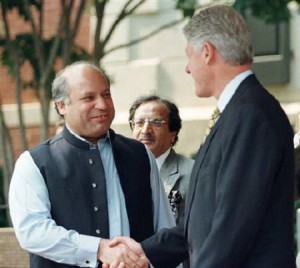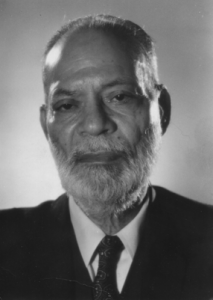Peace Watch » Editor's Take, Kashmir-Talk » Ceasefire violations and United Nation
Ceasefire violations and United Nation
PUNCHLINE
Slaphappy UN Secretary General
Z.G. Muhammad
If skirmishes along the Line of Control (LOC) nee the Cease Fire Line (CFL) and working boundary between India and Pakistan, escalate to war- conventional or nuclear, Who will be responsible for these wars? My answer to this question without mincing words, would be: the UN Secretary General. My outright answer is rooted in history of its failure in accomplishing its mandated objectives in Jammu and Kashmir and assuring lasting peace in the region.
The apprehensions about the skirmishes on the dividing line triggering nuclear war are not uncalled for. These are based on certain ground realties. The Kargil situation has proved to the world that Kashmir is a nuclear flashpoint. It is a historical reality that the United Nations for its half-hearted approach could not do much in preventing escalation of war in the rugged mountains of Ladakh. This limited war presaged use of nuclear weapons by the two countries. It was only for the intervention of the US President Bill Clinton that a nuclear exchange between the two countries was prevented. ‘The consequences of such a war would be catastrophic even if two sides involve in a limited nuclear exchange, as reflected in the report published by in international report.’ Many experts across the globe recognize the fact that Kashmir is a nuclear flashpoint. Stephen Cohen, US Scholar, has rightly pointed out that India and Pakistan fought three war on Kashmir and their conflict now contains seeds of a nuclear holocaust.’ Notwithstanding, from newspapers like New York Times to important think tanks seeing seeds of nuclear holocaust in India and Pakistan conflict over Kashmir United Nations has been shirking from performing the role it is supposed in accordance with its own resolutions .
.
For understanding, how it is responsibility of the UN Secretary General to maintain peace across the line dividing the State of Jammu and Kashmir one needs to go into the genesis of the CFL and understand whose job is to maintain peace along this line. If after change of nomenclature from CFL to LOC, in 1972 bilateral agreement (Shimla Agreement) has watered down role of the UN appointed military observers in Jammu and Kashmir also needs to be analysed in historical perspective of the resolutions and agreements.
India’s complaint before the UN Security Council against Pakistan caused couple of resolution with regard to ending up hostility between India and Pakistan and allowing people of Jammu and Kashmir an opportunity to decide their future in free atmosphere under aegis of impartial organization. On 29January India and Pakistan military representatives under auspices of the Truce Sub-Committee of UNCIP reached an agreement for establishment of a ceasefire line. ‘The Security Council resolution dated 21 April 1948 , in what was the formal reference to a ceasefire, at paragraph 17 granted initial legal authority for positing of UN military observers group (UNMOGIP) in Jammu and Kashmir. The first contingent of the group arrived in sub-continent on 24 January 1949. India and Pakistan in Karachi Agreement ‘explicitly’ sanctioned their presence in the state. The task of military observers consisting of somewhere between forty and sixty has been explicitly mandated, ‘to observe and report back to the United Nations Secretary General any violations of the Cease-fire’. The two sides’ right in 1949 had also agreed upon the definition of a breach of ceasefire. Six categories of activities were prohibited along the CFL these included, ‘crossing of the CFL or infringement of prohibition of troop movement with 500 yards of the line, new mining or wiring of any position and firing or use of explosive within five miles of the CFL without advance warning of the UN observers. As very rightly pointed out by Alastair Lamb, “From early days of Kashmir dispute until date there has been a direct physical United Nations presence in the State of Jammu and Kashmir on both the sides ceasefire line to remind the various parties that the world outside is watching what goes on.” For physical presence of UN army personnel and an international mandate duly endorsed by the two countries under an agreement it has been and is obligatory on the United Nation Secretary General to take cognizance of the ceasefire violations and play a proactive role in stopping them. Any flare up in the violations that could cause a war between India by all standards will be failure of the United Nations.
India imposed limitation on the UNMOGIP’s peace keeping after the 1972 bilateral agreement with Pakistan. On the Indian side, the military observers are barred from access to the CFL/LOC except at three crossings. New Delhi no longer brings complaints of ceasefire violation to the attention of the UN observers. So the very objective of stationing these observers gets defeated as it only reports lopsided information. The UN Secretary General for past forty two years took no initiative to address the issue. Professor Robert Wirsing analysing Simla Agreement writes, “It did not explicitly disestablish UNMOGIP and neither did it constitute repudiation of the UN resolution that apart from spelling out conditions of demilitarization and the conduct of a plebiscite, had brought UNMIOGP into being in first place.” (India and Pakistan and Kashmir Dispute). Like Wirsing many other European and American South Asia experts quoting Article 1 of the Simla Agreement which states the principles and purpose of the charter of the UN shall govern the relations between two countries hold that Simla Agreement in no way undermined the role of UN or UMMOGIP in Jammu and Kashmir.’ In sum and substance Simla Agreement changed nothing other than the nomenclature CFL to LOC – and these are ‘interchangeable terms’ as Victoria Schofield observes, “Without any further commitment other than those expressed in the agreement Bhutto secured the release of prisoners of war and 5139 Sq. miles of territory.”
It needs to be said that Simla Agreement had nothing to say about UN peacekeeping mission- so the role of UN for ensuring peace along the LOC and saving innocents from becoming cannon fodder remains intact.
Filed under: Editor's Take, Kashmir-Talk







